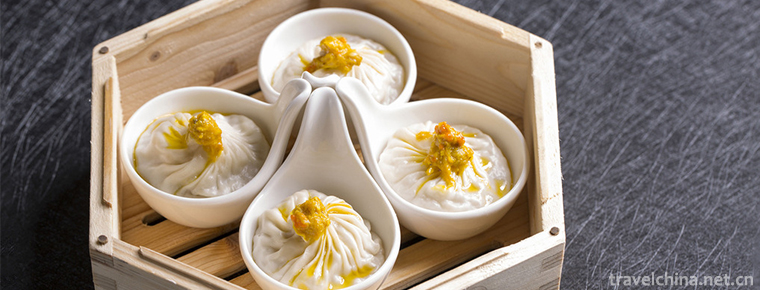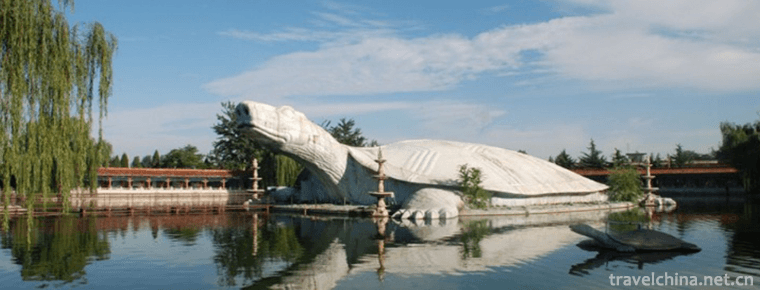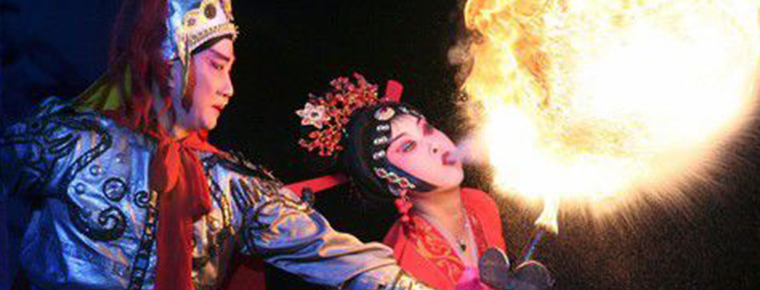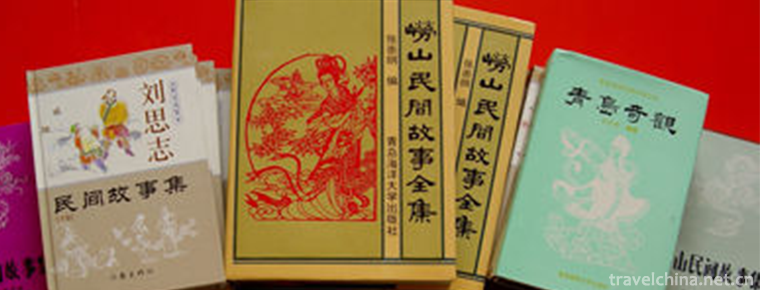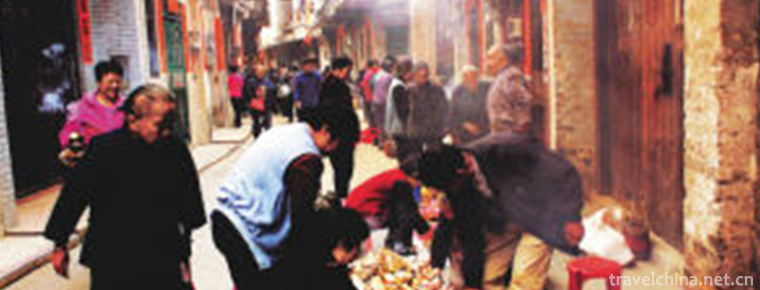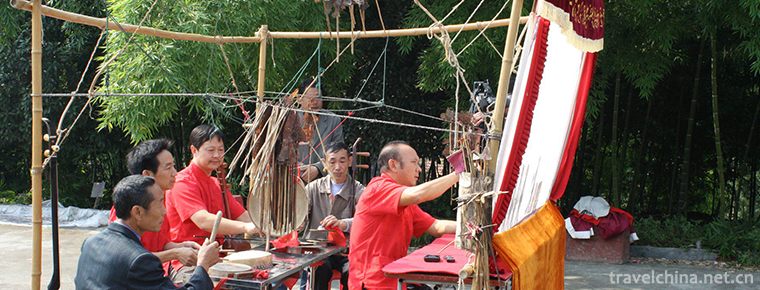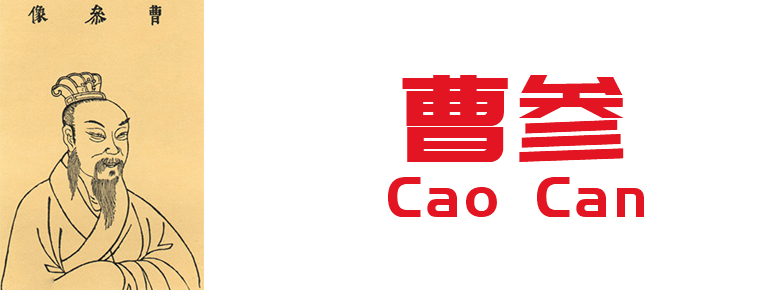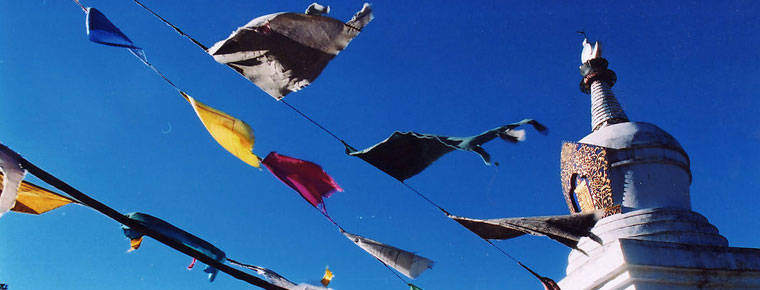Jiashan Tian Ge
Jiashan Tian Ge
Jiashan Tiange is a local folk song in Zhejiang Province. It belongs to a variety of Wuge songs. It is a unique form of ballad in Zhejiang Province. It is a song that workers sought comfort and expressed their thoughts and feelings in the past.
On June 7, 2008, Jiashan Tiange declared by Jiashan County, Zhejiang Province, was listed in the second batch of national intangible cultural heritage list with the approval of the State Council. Heritage serial number: 586 II-87.
historical origin
The field songs sung in the small rural areas of Luxu in Jiashan, Qingpu and Wujiang are very distinctive and well preserved. The tunes collected in Jiashan are more complete, so they are called Jiashan field songs.
I'm afraid the origin of Tiange will not come from a certain year or a month, but with the whole farming work. From the collected data of the field songs, the main contents are singing labor, singing rural life, singing love in the field. Labor and love are indeed the eternal themes of all folk songs, and Jiashan Tiange is no exception. It reflects the farming culture in plain water villages and is an important manifestation of farming culture. The song sings about the hard work of farming, the hardship of rural life, the contradiction between the rich and the poor in the countryside, the peasants'thoughts and love for life, the expectation of love and so on. It is a portrayal of the past life of the countryside in this area.
According to the content and background reflected by the existing Tiange, the most popular era of Jiashan Tiange was in the middle and late Qing Dynasty. There are descriptions of "bronze mirror", "three-inch golden lotus", "blue oil lampstand" and "shell window" in the data of Tiange, which can be inferred as the middle and late Qing Dynasty. In addition, cotton planting was prevalent in Jiashan countryside in the mid-Qing Dynasty. In the song "Twelve Months of Cotton", it was sung: "Cotton floated white in October, and Songjiang passenger ships arrived." Since the Ming Dynasty, "Weitang yarn, Songjiang cloth" is known to the world. Jiashan produces cotton and spins cotton yarn, which is the precursor of Songjiang cloth. Of course, we can see the vivid scene of Jiashan countryside from the field songs of past dynasties. The field songs also reached a glorious situation in the middle and late Qing Dynasty.
artistic form
Tian Ge is composed of solo singing, duet singing and singing in the form of a singing class composed of three, five, seven and nine people. The most common form is to compile long stories of local love stories and sing them everywhere. The tunes of Tiange include "dripping sound", "big head song", "sheep early", "falling Yangge", "flat tune", "urgent song" and "small allegro".
Representative repertoire
Tiange has a long history. As early as the Song Dynasty, Jiashan Tiange was included in the collection of Yuefu Poems and Wusheng Songs compiled by Guo Maoqian. Five Girls in December is the representative work of Jiashan Tiange, which is a narrative Tiange with a true love story happened in Tangdong Village, Hongxi Township, Jiashan in the Xianfeng Period of the Qing Dynasty. In early 1955, a field song class composed of Shen Shaoquan and other seven people sang "Five Girls" and participated in the first folk music and dance concert in Zhejiang Province, and won the performance award.
Area of circulation
Jiashan Tiange has a long history. Its main spreading area is Jiashan County and its Linxian County. It is a representative variety of Wuge in the south of the Yangtze River. It has a clear and graceful singing voice, such as dripping sound, falling Yangge, duotou song, Yangsaotou song, rush song, flat tune and so on. It is smooth and fluent from time to time, melodious and high-spirited from time to time, like spoken language. Jiashan Tian Song comes from labor and life, so different Tian Song tunes have different singing methods and occasions. The singing methods of Jiashan Tian Song include solo singing, duet singing, chorus singing, and joint singing. The December flower name "Five Girls" of Jiashan Tian Song has been sung among the people for a century, and has been adapted into Yueju Opera, Dance Opera and other artistic forms on the stage.
Inheritance significance
"Jiashan Tiange" is an excellent folk song with strong individuality in the local culture of Jiangnan. It is bright and beautiful, full of the charm of Jiangnan water village, and it is a valuable national music cultural heritage. Jiashan Tiange, as an excellent local cultural heritage of Jiashan, occupies a special position in historical and cultural value, especially in music value.
literary merit
First of all, we should talk about its literary value. In the past, like other countryside in Jiashan, most peasants were illiterate, and the singing of Tiange was oral. It was a kind of oral literature with the help of music. Its literariness is mainly manifested in some narrative songs, which often have characters, plots and stories, and these narrative songs have a certain length, that is to say, a certain literary capacity. However, in a period of time, the sensational narrative Tian Ge unexpectedly found more than 2,000 sentences, which is a bit mysterious. After all, songs are sung, oral art rather than written art. In Jiashan Tiange, the oldest and longest are not more than 200 sentences. We are Han nationality, even in the backward countryside, there can be no long-term positive and rich folk songs. And these narrative songs also reflect the late Qing Dynasty. As long as we look at Peacock Flying Southeast, we can see that its literati processing marks are obvious, and the singing method is lost, and it has become only a written work - a song on paper. Therefore, while affirming the literary value of Tian Ge, we should not overstate it.
In addition, the local language and lining words in Jiashan Tiange are very distinctive. Jiashan dialect belongs to Wu dialect. Because of the particularity of local customs and folk customs, and the vanguard of Wudi farming civilization, its language is very complex, so far many words can hardly be replaced in modern Chinese. Jiashan dialect is more regional than Wu dialect. A large number of "triple tones" in Tiange are the influence of dialect tones. The influence of dialect on local literature and local writers is very obvious.
Music value
Secondly, the value of music is also the charm of Jiashan Tiange. Because of singing while working in the field, the tune is very free, and the length of the phrase varies with the time and rhythm of the work. But because of singing in the wilderness, it must spread far. Its singing method is the original ecological singing method of true voice and straight tone, which has formed characteristics from generation to generation. From the scientific analysis of acoustics, the sound of Jiashan Tiange is to open the carmine tune and expand the carmine tune to the left and right. Under the impact of strong breath, a flat and bright voice is formed. Growing up in Jiashan rural area, I heard grandmother's singing, full of voice, strong breath, whole-hearted devotion, the state is very moving. The melodies of several tunes of Jiashan Tiange are very beautiful. They are all five-tone scales, with "3", "5", "6" as the backbone tone. When singing long tones, they clip the lining words. In the "sold Tiange" section of the three-person rotation, there is no lyrics, and all the lining words are sung. It is quite different from the "minor tune" in Wu Ge. Therefore, some people think that it is the "long tune" in traditional folk songs. (Trial singing). In addition, some narrative songs have a large capacity and plot, but the limited working time can not sing too long, so there is "urgent song" chanting. This is actually a special form of traditional folk rap. It does not correspond to the scale, but has a tune, which is very consistent with the tone of the local language. This is its special position in traditional folk songs, and its roots are of great academic value in music culture.
Inheritance status
Before liberation, the society did not attach importance to the village field songs. There was no official record of Jiashan field songs in the past historical books, nor did anyone collect and sort out the rich heritage. After liberation, the rise of mass culture made Tian Ge hot, especially the promulgation of the new marriage law in the early 1950s, which advocated freedom of marriage and opposed arranged marriage, which is very consistent with the love singing in many Tian Ge. One of the reasons why many field songs have been circulated to this day is the tortuous and moving love stories sung in the songs. Five Girls is one of them. It eulogizes the life of Five Girls and Xu A-yu who bravely pursue freedom of marriage without fear of feudal coercion. The original song has twelve paragraphs and fifty sentences, but the story is very complete. Gu Xidong, the playwright at that time, changed it into Yueju opera, which is the need to publicize the new marriage law.
In the first half of 1957, some cultural workers and local cultural centers organized excavation and collection of Jiashan Tiange, and systematically compiled two volumes of Tiange Materials. Some Laotian singers also performed on stage in various mass performances, and some also participated in provincial and municipal capitals performances and won prizes. In the late 1950s, Laotian songs were no longer suitable for the needs of social and cultural life, so some musicians used the tunes of Laotian songs to adapt and fill in new words. For example, in 1959, "Marriage of Taihu Lake in Huangpu", in 1960, "Chairman Mao Like the Red Sun" and later "Food Delivery". It was Mr. Hou Jiasheng who first attempted the creation of Xintian Song. After the Cultural Revolution, Xintian Song gradually flourished. In 1977, Xintian Song "Pair Flowers" and "Fengchun" were well received in the provincial capital performance. After the 1980s, a large number of excellent works, such as "Husband Ala", "Mixed Seedlings" and "Ala Village Can Meet the Good", participated in the provincial and municipal performance successively. In 1990, Radio Central International recorded a group of Xinjiashan Tian Songs and invited professional actors to perform. For cultural exchange with other countries and cities. This group of songs are all composed by Jinmei. The next year, the musical feature film "Rural Rhyme", which was shot by Jiashan TV Station, was broadcast in seven sets of provincial, municipal and central stations successively, with increasing influence. In 1996, a series and seminar of the First Jiangsu-Zhejiang-Shanghai Adjacent Area Tianshan Song Conference was held in Jiashan, sponsored by Jiashan County Cultural Bureau and Wenlian. Shanghai Artist selected excellent papers from the seminar. In 2001, Jiashan County Wenlian and the Education Bureau jointly organized Tiange Entering Music Classroom Activities in Primary and Secondary Schools. A hundred editions of new and old Tiange and accompaniment tapes were recorded and distributed to primary and secondary schools in the county, laying a foundation for promoting Tiange and training new people. In the same year, CCTV filmed the field song "Playing Duck Song" performed by Jiashan Experimental Primary School in Xitang, and broadcast it in seven programs. In the same year, "China Tian (Mountain) Song Seminar" was held in Jiashan. Xintian Song "The Linghua Blossom in South Lake" and "The Call of Cattle" were performed by professional groups on many occasions. As the state attaches more and more importance to intangible cultural heritage, Jiashan Tiange is also included in the intangible cultural heritage project of the province. According to Jiashan Tiange's "Five Girls in December", the musical "Five Girls", which lasted three years, won the Wenhua Award at the 7th China Art Festival, which further enhanced the reputation of Jiashan Tiange. In 2005, CCTV Music Channel "Folk Song China" invited representatives of our county to Beijing to perform Jiashan Tian Song on video and broadcast it to the whole country.
Local culture has its own inheritance inertia, our music creators should go deep into the modern new countryside according to the characteristics of the field songs, learn from the Laotian singers, and create the field songs reflecting the modern rural life and the new farmers'thoughts and feelings. In a few decades, are these not Laotian songs yet? Moreover, from the perspective of social existence value, the current creation of the field songs is not. It is a reflection of the new rural life, has the vitality of the times, is also the extension of rural customs, it is cut off continuously. Because the aesthetic habits in rural areas have a long historical origin, the traditional customs and culture are deeply impressed, especially in today's harmonious society, they should be shown tenaciously and survive tenaciously. Facts have proved that many Laotian singers have spontaneously compiled some new lyrics and are still singing there! In addition, from a musical point of view, the melody of Tian Ge is also developing. Many singers combine several melodies to sing together. The singing methods include solo, rotation, duet, etc. Its musical personality is a special symbol of our vocal music in Jiangnan Water Village, and it is a musical totem. This kind of music element and style is often our dependence and keynote to create new folk songs. This is the reason why many of our famous musicians are rooted in the folk, their essence, their style, and their brilliant works. The musical "Five Girls" is a kind of development of Tiange, and a large number of Xintian songs are the needs of current rural cultural life.
The society needs the further promotion of Tian Ge, because its music is very rare, unique, has a strong national and local character, is a treasure! Although the former working environment has disappeared, the aesthetic tendency of modern people will be different now. But we can make full use of its cultural advantages, add new social content, retain its cultural characteristics, change its rhythm form, and make it suitable for contemporary people's aesthetic taste! Because the affinity for the local is still there, the sense of intimacy is still there.

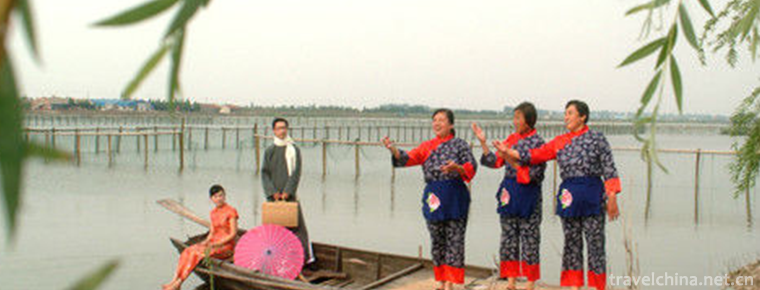
-
Crab Dumplings in Soup
Crab yellow soup bag is a traditional snack in Jiangsu Province. The crab yellow soup bag is made of crab yellow and crab meat with stuffing.
Views: 149 Time 2018-10-27 -
Oriental Giant Turtle Garden
Located on the East Bank of Yehe River in Pingshan County, Hebei Province, the Oriental Giant Turtle Garden is near Xibaipo, a sacred revolutionary site, 35 kilometers east of Shijiazhuang.
Views: 109 Time 2018-12-20 -
Two tones of Han tune
Originally known as "Shan Er-huang", "Tu Er-huang" or "Shan Er-huang", the second largest traditional opera in Shaanxi Province is one of the traditional local operas in .
Views: 128 Time 2019-05-02 -
Laoshan Folk Stories
Laoshan folk tales, commonly known as Lagua, are oral literature created by the local people of Laoshan Mountain in Shandong Province for thousands of years. There were few written records before libe.
Views: 115 Time 2019-05-11 -
Liaobu fragrant Market
Liaobuxiang City is a traditional folk activity. During the Wanli period of Ming Dynasty, the scent of Guanxiang perfumed over Liaobu Town in Dongguan every day. Numerous guanxiangs were transported f.
Views: 173 Time 2019-05-13 -
Chord cavity
Based on Pingli dialect in Ankang City, Shaanxi Province, there are 13 singing patterns, including 8 commonly used tunes, 18 suona tunes and 30 gongs and drums. Pingli string is a complete set of loca.
Views: 311 Time 2019-07-03 -
Beijing University Of Technology
Founded in 1960, Beijing University of Technology is a multi-disciplinary municipal key university with a combination of engineering, science, economics, management, literature, law, art and education.
Views: 339 Time 2019-09-06 -
Cao Can
Cao Can(? - 190 BC) , Han nationality Peixian people In the Western Han Dynasty, the founding fathers and famous generals were the following. Xiao He Later, the second dynasties in the Han Dynasty wer.
Views: 285 Time 2019-09-15 -
Chunqiu Temple
Chunqiu temple, also known as Chunqiu pool and Chunqiu Pavilion, is located in Yandian street, Xuyong county (Xuyong town), Luzhou City, Sichuan Province. It is mainly dedicated to Guan Sheng emperor. It is said that Guan Yu likes to read the biography of the left family in the spring and Autumn period, so it is named Chunqiu temple..
Views: 222 Time 2020-10-15 -
Chongzhou Confucian Temple
One of the four best preserved Confucian temples in Sichuan Province. National key cultural relics protection units. Confucius Cultural Center in Western China. It is located in the south of Chongzhou painting pool. .
Views: 331 Time 2020-11-05 -
Paoma mountain Paoma Hill
Paoma mountain is located in the south of Kangding City, Ganzi Tibetan Autonomous Prefecture, Sichuan Province. It is the extension of Gongga mountain to the north. It is the core area of the "two-hour tourism economic circle around Gongga" and a national .
Views: 109 Time 2020-12-06 -
Guangan Education
As of 2019, there are 1198 schools at all levels in Guang'an City, including 696 kindergartens (including 119 public kindergartens), 194 primary schools, 235 junior high schools, 6 special schools, 1 work study school, 42 ordinary senior high schools (includi.
Views: 375 Time 2020-12-19
